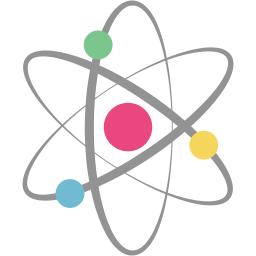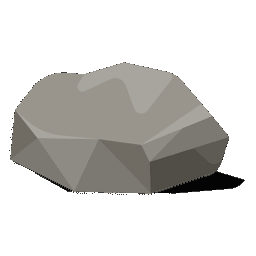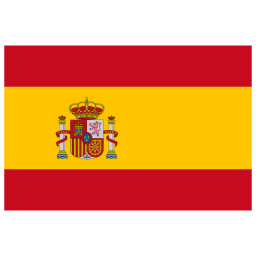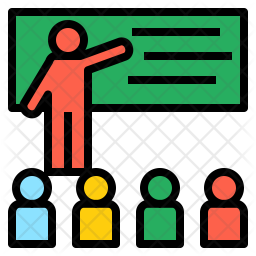Menu
- Anti-gaspillage de fiches de cours
Application Educative Veritas
Anti-gaspillage de fiches de cours
- Veritas est une application 100% anti-gaspillage de fiches de cours, devoirs, etc tapés sur word ★★★★★ Parce que chaque année des milliers de fichiers sont saisis sur word et ne sont plus jamais ouverts et ne servent plus à rien sur votre ordinateur. Plutôt que de gaspiller ces ressources, partageons-les...
Des ressources pédagogiques à portée de clics pour apprendre toutes sortes de disciplines et sciences (médicales, gestion, sociologie, gynécologie, ressources humaines, psychologie, géologie, sport, communication, mathématiques, chimie, astronomie, cosmétologie, nursing, biologie, politique, art, économie, nutrition, ... ) et langues (anglais, TOEIC, japonais, chinois,...). Parce qu'apprendre est un véritable plaisir...
Une application unique au monde pour apprendre en ligne simplement, gratuitement et à votre propre rythme sans aucunes contraintes.
- Veritas est une application 100% anti-gaspillage de fiches de cours, devoirs, etc tapés sur word ★★★★★ Parce que chaque année des milliers de fichiers sont saisis sur word et ne sont plus jamais ouverts et ne servent plus à rien sur votre ordinateur. Plutôt que de gaspiller ces ressources, partageons-les...
Des ressources pédagogiques à portée de clics pour apprendre toutes sortes de disciplines et sciences (médicales, gestion, sociologie, gynécologie, ressources humaines, psychologie, géologie, sport, communication, mathématiques, chimie, astronomie, cosmétologie, nursing, biologie, politique, art, économie, nutrition, ... ) et langues (anglais, TOEIC, japonais, chinois,...). Parce qu'apprendre est un véritable plaisir...
Suivez-nous sur les réseaux sociaux
- Sciences Sociales
-
-
 Communication / Marketing Plus qu'un art, la communication est une science qui se cultive. Science du message et de l'émotion. Discipline proche de la psychologie et d'autres sciences sociales. Fiches de cours, révisions, examens,...
Communication / Marketing Plus qu'un art, la communication est une science qui se cultive. Science du message et de l'émotion. Discipline proche de la psychologie et d'autres sciences sociales. Fiches de cours, révisions, examens,... -
 Géographie Science des territoires Le géographe dresse l' inventaire des territoires et observe tous les facteurs naturels, politiques, économiques et sociaux. Fiches de cours Faculté, Université, Prépa, école, Licence, Deug, Master.
Géographie Science des territoires Le géographe dresse l' inventaire des territoires et observe tous les facteurs naturels, politiques, économiques et sociaux. Fiches de cours Faculté, Université, Prépa, école, Licence, Deug, Master. -
 Histoire / Science du passé L'histoire a en vue d'expliciter les causes, et par là de rendre intelligibles les faits qu'elle étudie. Cours et fiches de révisions, disserations, commentaires de textes,...
Histoire / Science du passé L'histoire a en vue d'expliciter les causes, et par là de rendre intelligibles les faits qu'elle étudie. Cours et fiches de révisions, disserations, commentaires de textes,... -
 Theatre History / Cultural History Learn about the origin of theatre and its history. Theatre Evolution though History Science. A Cultural History of Theatre presents an authoritative survey from ancient times to the present. It brings to life a past time and place. It poses a wide range of problems for intellectual historians, from accusation of narrowness and elitism to suggestions.
Theatre History / Cultural History Learn about the origin of theatre and its history. Theatre Evolution though History Science. A Cultural History of Theatre presents an authoritative survey from ancient times to the present. It brings to life a past time and place. It poses a wide range of problems for intellectual historians, from accusation of narrowness and elitism to suggestions.
-
-
-
 Politique / Science du pouvoir La science politique est proprement l'art de gouverner un Etat. La science politique peut donc se définir la science du gouvernement des États ou l'étude des principes qui constituent les gouvernements et doivent les diriger.
Politique / Science du pouvoir La science politique est proprement l'art de gouverner un Etat. La science politique peut donc se définir la science du gouvernement des États ou l'étude des principes qui constituent les gouvernements et doivent les diriger. -
 Political thinking and mindset Political science focuses on the theory and practice of government and politics at the local, state, national, and international levels. We are dedicated to developing understandings of institutions, practices, and relations that constitute public life and modes of inquiry that promote citizenship.
Political thinking and mindset Political science focuses on the theory and practice of government and politics at the local, state, national, and international levels. We are dedicated to developing understandings of institutions, practices, and relations that constitute public life and modes of inquiry that promote citizenship. -
 Psychologie / Psychology Science ayant pour but de comprendre la structure et le fonctionnement de l'activité mentale et des comportements qui lui sont associés. Fiches de cours Université, faculté, Licence, Master.
Psychologie / Psychology Science ayant pour but de comprendre la structure et le fonctionnement de l'activité mentale et des comportements qui lui sont associés. Fiches de cours Université, faculté, Licence, Master. -
 Women psychology / Les femmes Sigmund Freud famously asked the question, but he didn't have an answer. Even today, the question of what motivates female sexual desire continues to resound. Definitive answers have proven elusive. Let's try to understand women better with women psychology.
Women psychology / Les femmes Sigmund Freud famously asked the question, but he didn't have an answer. Even today, the question of what motivates female sexual desire continues to resound. Definitive answers have proven elusive. Let's try to understand women better with women psychology.
-
-
-
 Sémiologie / Communication La sémiologie de la Communication étudie uniquement le monde des signes. Etude des publicités, décryptage, signes, symboles, système.
Sémiologie / Communication La sémiologie de la Communication étudie uniquement le monde des signes. Etude des publicités, décryptage, signes, symboles, système. -
 Sociologie / Sciences Humaines Le sociologue analyse les mécanismes qui régissent les rapports entre les individus et les groupes et les relations propres à un groupe donné. Il étudie les phénomènes, les comportements sociaux et l’évolution des sociétés. Fiches de cours Faculté.
Sociologie / Sciences Humaines Le sociologue analyse les mécanismes qui régissent les rapports entre les individus et les groupes et les relations propres à un groupe donné. Il étudie les phénomènes, les comportements sociaux et l’évolution des sociétés. Fiches de cours Faculté. -
 Sociology / Human Science Sociology is the study of human social relationships and institutions. Sociology’s subject matter is diverse, ranging from crime to religion, from the family to the state, from the divisions of race and social class to the shared beliefs of a common culture, and from social stability to radical change in whole societies.
Sociology / Human Science Sociology is the study of human social relationships and institutions. Sociology’s subject matter is diverse, ranging from crime to religion, from the family to the state, from the divisions of race and social class to the shared beliefs of a common culture, and from social stability to radical change in whole societies. -
 Family Study / Sociology Sociology of the family examines the family as one of several key social institutions, and as a unit of socialization. It explores the ways in which individuals influence and are influenced by families, communities, cultures, institutions, and societies, and by ideas, norms, and values.
Family Study / Sociology Sociology of the family examines the family as one of several key social institutions, and as a unit of socialization. It explores the ways in which individuals influence and are influenced by families, communities, cultures, institutions, and societies, and by ideas, norms, and values.
-
-
-
 Psychology / Science of the mind Psychology is the study of the mind and behavior. Research in psychology seeks to understand and explain how people think, act, and feel. Psychologists strive to learn more about the many factors that can impact thought and behavior, ranging from biological influences to social pressures.
Psychology / Science of the mind Psychology is the study of the mind and behavior. Research in psychology seeks to understand and explain how people think, act, and feel. Psychologists strive to learn more about the many factors that can impact thought and behavior, ranging from biological influences to social pressures. -
 Anthropology / Study of people The study of people throughout the world, their evolutionary history, how they behave, adapt to different environments, communicate and socialise with one another. Study of humans, early hominids and primates, such as chimpanzees.
Anthropology / Study of people The study of people throughout the world, their evolutionary history, how they behave, adapt to different environments, communicate and socialise with one another. Study of humans, early hominids and primates, such as chimpanzees. -
 Gemmologie / Sciences des pierres Science qui consiste à étudier les gemmes, déterminer l’origine et l’authenticité des pierres gemmes (diamant, rubis, émeraude, saphir,…), des perles et des pierres décoratives (agate, jaspe, calcédoine, lapis-lazuli, jade …).
Gemmologie / Sciences des pierres Science qui consiste à étudier les gemmes, déterminer l’origine et l’authenticité des pierres gemmes (diamant, rubis, émeraude, saphir,…), des perles et des pierres décoratives (agate, jaspe, calcédoine, lapis-lazuli, jade …). -
 Philosophie / Amour de la sagesse Recherche de la compréhension du réel considéré à son plus haut degré de généralité. Discipline intellectuelle qui utilise des méthodes qui se veulent rationnelles et critiques
Philosophie / Amour de la sagesse Recherche de la compréhension du réel considéré à son plus haut degré de généralité. Discipline intellectuelle qui utilise des méthodes qui se veulent rationnelles et critiques
-
- Sciences Scientifiques
-
-
 Biochimie / Science transformation Chimie biologique ou chimie organique, Science spécialisée dans l'étude de la composition et des réactions chimiques de la matière vivante et des substances qui proviennent de cette matière vivante. Biologie Moléculaire et Cellulaire, Génétique.
Biochimie / Science transformation Chimie biologique ou chimie organique, Science spécialisée dans l'étude de la composition et des réactions chimiques de la matière vivante et des substances qui proviennent de cette matière vivante. Biologie Moléculaire et Cellulaire, Génétique. -
 Biologie / Science de la vie Science de la Vie et du vivant, étude des cellulles, organismes, Homme. La biologie étudie le vivant, à chaque niveau de son organisation, depuis sa constitution moléculaire jusqu'à sa place dans la biosphère en passant par les niveaux cellulaire et tissulaire.
Biologie / Science de la vie Science de la Vie et du vivant, étude des cellulles, organismes, Homme. La biologie étudie le vivant, à chaque niveau de son organisation, depuis sa constitution moléculaire jusqu'à sa place dans la biosphère en passant par les niveaux cellulaire et tissulaire. -
 Chimie et Physique / Science La chimie s’intéresse à la composition de toutes les substances qui forment notre univers, à leurs propriétés et à leurs transformations. Les chimistes cherchent à mieux comprendre comment notre monde fonctionne.
Chimie et Physique / Science La chimie s’intéresse à la composition de toutes les substances qui forment notre univers, à leurs propriétés et à leurs transformations. Les chimistes cherchent à mieux comprendre comment notre monde fonctionne. -
 Chemistry / Science of change Chemistry is the study of matter, its properties, how and why substances combine or separate to form other substances, and how substances interact with energy.
Chemistry / Science of change Chemistry is the study of matter, its properties, how and why substances combine or separate to form other substances, and how substances interact with energy.
-
-
-
 OAT Optometry Test / Visual acuity Optometry Admission Test (O.A.T.) is a test used to determine applicants' qualification for admission to a school of optometry. Optometry is the science or practice of testing visual acuity and prescribing corrective lenses.
OAT Optometry Test / Visual acuity Optometry Admission Test (O.A.T.) is a test used to determine applicants' qualification for admission to a school of optometry. Optometry is the science or practice of testing visual acuity and prescribing corrective lenses. -
 Géologie / Science de la terre La géologie est la science qui traite de la composition, de la structure, de l'histoire et de l'évolution des couches externes de la Terre, et des processus qui la façonnent. La géologie est une discipline importante parmi les sciences de la Terre.
Géologie / Science de la terre La géologie est la science qui traite de la composition, de la structure, de l'histoire et de l'évolution des couches externes de la Terre, et des processus qui la façonnent. La géologie est une discipline importante parmi les sciences de la Terre. -
 Geology / Earth and rocks Science Geology is the study of the Earth, the materials of which it is made, the structure of those materials, and the processes acting upon them. It includes the study of organisms that have inhabited our planet.
Geology / Earth and rocks Science Geology is the study of the Earth, the materials of which it is made, the structure of those materials, and the processes acting upon them. It includes the study of organisms that have inhabited our planet. -
 Informatique / Computer Science Appelée aussi computer science, l'informatique est la science du traitement des informations avec des moyens électroniques : développement, programmation, langage, BTS, DUT, java, sécurité, database, data mining, TP, TD, fiches de révisions, fiches de cours.
Informatique / Computer Science Appelée aussi computer science, l'informatique est la science du traitement des informations avec des moyens électroniques : développement, programmation, langage, BTS, DUT, java, sécurité, database, data mining, TP, TD, fiches de révisions, fiches de cours.
-
-
-
 Math-Physique / MPI / Prépa Les mathématiques désignent la science du vrai et du faux. Science exacte et précise. Fiches de cours et exercices. La physique est la science des propriétés et des relations mutuelles dans le temps de la matière et de l'énergie.
Math-Physique / MPI / Prépa Les mathématiques désignent la science du vrai et du faux. Science exacte et précise. Fiches de cours et exercices. La physique est la science des propriétés et des relations mutuelles dans le temps de la matière et de l'énergie. -
 Médecine / Anatomie / Physiologie Science Médicale (PACES), Premiers soins, Soins Infirmiers, Soins Urgence, anatomie, physiologie, biologie cellulaire, gynécologie, étude des maladies, science du médicament, sémiologie, pharmacologie,...
Médecine / Anatomie / Physiologie Science Médicale (PACES), Premiers soins, Soins Infirmiers, Soins Urgence, anatomie, physiologie, biologie cellulaire, gynécologie, étude des maladies, science du médicament, sémiologie, pharmacologie,... -
 Emergency Care / Medical Science Emergency Medical Science is about providing treatment to those in need of urgent medical care. Care and counsel of persons who are ill or injured or who have disabilities.
Emergency Care / Medical Science Emergency Medical Science is about providing treatment to those in need of urgent medical care. Care and counsel of persons who are ill or injured or who have disabilities. -
 Health Assessment / Semiology Health Assessment or semiology. Nursing Science and Physical Examination Courses Notes for college. By this assessment we detect disease early followed by the treatment. Medical semiology comprises the study of symptoms, somatic signs and laboratory signs, history taking and physical examination
Health Assessment / Semiology Health Assessment or semiology. Nursing Science and Physical Examination Courses Notes for college. By this assessment we detect disease early followed by the treatment. Medical semiology comprises the study of symptoms, somatic signs and laboratory signs, history taking and physical examination
-
-
-
 Odontologie Science dentaire Spécialité médicale qui se consacre à l’étude des dents et aux gencives et au traitement de ses maladies. Science du dentaire.
Odontologie Science dentaire Spécialité médicale qui se consacre à l’étude des dents et aux gencives et au traitement de ses maladies. Science du dentaire. -
 Gynécologie-Obstétrique Discipline médicale et chirurgicale, la gynécologie obstétrique désigne toutes les interventions en rapport avec la grossesse, qu'il s'agisse de la femme enceinte ou de son fœtus.
Gynécologie-Obstétrique Discipline médicale et chirurgicale, la gynécologie obstétrique désigne toutes les interventions en rapport avec la grossesse, qu'il s'agisse de la femme enceinte ou de son fœtus. -
 Pharmacie / Pharmacologie La pharmacologie, est la science du médicament : elle étudie les effets et le devenir du médicament dans l’organisme. Fiches de cours BTS, DUT, Université. Discipline indispensable dans l'élaboration des médicaments puisqu'elle permet de mettre en avant les possibles effets indésirables ou les interactions avec d'autres principes actifs et donc d'autres médicaments.
Pharmacie / Pharmacologie La pharmacologie, est la science du médicament : elle étudie les effets et le devenir du médicament dans l’organisme. Fiches de cours BTS, DUT, Université. Discipline indispensable dans l'élaboration des médicaments puisqu'elle permet de mettre en avant les possibles effets indésirables ou les interactions avec d'autres principes actifs et donc d'autres médicaments. -
 VTNE Veterinary Animal Care Veterinary Medicine and Animal Care Everything you need to know to become a real Vet. Veterinary science deals with the health and wellbeing of animals. VTNE Veterinary Technician National Exam Prep, animal care nursing, laboratory procedures, pharmacy and pharmacology
VTNE Veterinary Animal Care Veterinary Medicine and Animal Care Everything you need to know to become a real Vet. Veterinary science deals with the health and wellbeing of animals. VTNE Veterinary Technician National Exam Prep, animal care nursing, laboratory procedures, pharmacy and pharmacology
-
- Droit et Economie
-
-
 Droit / Science juridique Le droit comprend l'ensemble des règles qui gouvernent les hommes vivant en société et dont l'exécution est assurée par la force publique. Fiches de cours de Science juridique, Université, Licence, Master, BTS, DUT, IUT, école,...Droit commercial, civil, consitutionnel, histoire du droit, fiscal, pénal, bancaire,...
Droit / Science juridique Le droit comprend l'ensemble des règles qui gouvernent les hommes vivant en société et dont l'exécution est assurée par la force publique. Fiches de cours de Science juridique, Université, Licence, Master, BTS, DUT, IUT, école,...Droit commercial, civil, consitutionnel, histoire du droit, fiscal, pénal, bancaire,... -
 LSAT Legal Law Study Test Legal Law Study LSAT Exams for schools admissions for Law Degree. The LSAT (Law School Admission Test) is required for admission to most law schools and is offered four times each year. The top law schools will be looking for scores that are close to perfect.
LSAT Legal Law Study Test Legal Law Study LSAT Exams for schools admissions for Law Degree. The LSAT (Law School Admission Test) is required for admission to most law schools and is offered four times each year. The top law schools will be looking for scores that are close to perfect. -
 Paralegal Studies / Law Science A paralegal is a non-lawyer who performs routine tasks requiring some knowledge of the law and procedures, employed by a law office or who works free-lance as an independent for various lawyers.
Paralegal Studies / Law Science A paralegal is a non-lawyer who performs routine tasks requiring some knowledge of the law and procedures, employed by a law office or who works free-lance as an independent for various lawyers. -
 Criminal Law / Law Science Criminal law refers to a body of laws that apply to criminal acts. In instances where an individual fails to adhere to a particular criminal statute, he or she commits a criminal act by breaking the law.
Criminal Law / Law Science Criminal law refers to a body of laws that apply to criminal acts. In instances where an individual fails to adhere to a particular criminal statute, he or she commits a criminal act by breaking the law.
-
-
-
 Constitutional Law / Law Science Constitutional law is a body of law which defines the role, powers, and structure of different entities within a state, namely, the executive, the parliament or legislature, and the judiciary; as well as the basic rights of citizens.
Constitutional Law / Law Science Constitutional law is a body of law which defines the role, powers, and structure of different entities within a state, namely, the executive, the parliament or legislature, and the judiciary; as well as the basic rights of citizens. -
 Employment Law / Law Science Employment Law covers employees rights and obligations within the employer-employee relationship. Employment law governs the rights and duties between employers and workers. Also referred to as labor law, these rules are primarily designed to keep workers safe and make sure they are treated fairly.
Employment Law / Law Science Employment Law covers employees rights and obligations within the employer-employee relationship. Employment law governs the rights and duties between employers and workers. Also referred to as labor law, these rules are primarily designed to keep workers safe and make sure they are treated fairly. -
 GMAT Graduate Management Graduate Management Admission Test (GMAT) help you get into MBA (Masters in Business Administration). Your GMAT score is probably the most important factor in determining whether you will be admitted to a top-tier business school.
GMAT Graduate Management Graduate Management Admission Test (GMAT) help you get into MBA (Masters in Business Administration). Your GMAT score is probably the most important factor in determining whether you will be admitted to a top-tier business school. -
 GRE Graduate Record Examination The graduate record examination (GRE) is a standardized exam used to measure one's aptitude for abstract thinking in the areas of analytical writing, mathematics and vocabulary.
GRE Graduate Record Examination The graduate record examination (GRE) is a standardized exam used to measure one's aptitude for abstract thinking in the areas of analytical writing, mathematics and vocabulary.
-
-
-
 Gestion / Finance / Management Cours et fiches de cours de gestion (Université, BTS, DUT, Licence, Master). Comptabilité, audit, gestion financière, stratégie entreprise, salesforce, ventes, amortissements, analyse financière, contrôle de gestion, management, normes IAS, IFRS,...
Gestion / Finance / Management Cours et fiches de cours de gestion (Université, BTS, DUT, Licence, Master). Comptabilité, audit, gestion financière, stratégie entreprise, salesforce, ventes, amortissements, analyse financière, contrôle de gestion, management, normes IAS, IFRS,... -
 Accounting / Comptabilité Accounting is the recording of financial transactions plus storing, sorting, retrieving, summarizing, and presenting the information in various reports and analyses.
Accounting / Comptabilité Accounting is the recording of financial transactions plus storing, sorting, retrieving, summarizing, and presenting the information in various reports and analyses. -
 GRH Ressources Humaines Fiches de cours de GRH. La gestion des ressources humaines ou gestion du personnel est un ensemble de pratiques pour administrer, mobiliser et développer les ressources humaines sur l'ensemble des employés.
GRH Ressources Humaines Fiches de cours de GRH. La gestion des ressources humaines ou gestion du personnel est un ensemble de pratiques pour administrer, mobiliser et développer les ressources humaines sur l'ensemble des employés. -
 HRM Human Resources Human resource management is a contemporary, umbrella term used to describe the management and development of employees in an organization. Also called personnel or talent management.
HRM Human Resources Human resource management is a contemporary, umbrella term used to describe the management and development of employees in an organization. Also called personnel or talent management.
-
-
-
 TD Droit (Travaux Dirigés) Les travaux dirigés sont un passage incontournable des études de droit. Fiches de révisions, commentaires d'arrêts, dissertations, analyse de texte,...Utilisation du code juridique, décryptages des lois, étude des exceptions aux règles juridiques, revirement juridique,...
TD Droit (Travaux Dirigés) Les travaux dirigés sont un passage incontournable des études de droit. Fiches de révisions, commentaires d'arrêts, dissertations, analyse de texte,...Utilisation du code juridique, décryptages des lois, étude des exceptions aux règles juridiques, revirement juridique,... -
 TD Economie (Travaux Dirigés) Fiches de révision TD économie, Le chargé d'études économiques étudie et analyse la conjoncture économique. À l'aide de savants calculs, il établit des prévisions pour un organisme public ou une entreprise tout en suivant de près les marchés boursiers et la concurrence.
TD Economie (Travaux Dirigés) Fiches de révision TD économie, Le chargé d'études économiques étudie et analyse la conjoncture économique. À l'aide de savants calculs, il établit des prévisions pour un organisme public ou une entreprise tout en suivant de près les marchés boursiers et la concurrence. -
 Economie (Macro/Micro-economie) Sciences économiques et sociales, macro-économie, micro-économie, fiches de cours, révisions, introduction, initiation, économie monétaire, financiaire, théorique, bancaire, trading, poilique monétaire, politique économique.
Economie (Macro/Micro-economie) Sciences économiques et sociales, macro-économie, micro-économie, fiches de cours, révisions, introduction, initiation, économie monétaire, financiaire, théorique, bancaire, trading, poilique monétaire, politique économique.
-
- Art et Design
-
-
 Archéologie et Paléontologie / Science du passé Science qui étudie les éléments du patrimoine pour en tirer des informations historiques sur les occupations humaines qui se sont succédé et sur leur contexte.
Archéologie et Paléontologie / Science du passé Science qui étudie les éléments du patrimoine pour en tirer des informations historiques sur les occupations humaines qui se sont succédé et sur leur contexte. -
 Archeology / Science of the past Archaeology offers a unique perspective on human history and culture that has contributed greatly to our understanding of both the ancient and the recent past.
Archeology / Science of the past Archaeology offers a unique perspective on human history and culture that has contributed greatly to our understanding of both the ancient and the recent past. -
 Arts Plastiques / Design / Ecole Art L’Art est un état d’esprit, c’est avoir la conscience que par chacun de nos gestes nous sommes en train de créer quelque chose d’original et d’unique. Le seul commandement de l’Art, c’est : cherche toujours à développer cet apport personnel, à faire en sorte que chacun de tes actes soit toi et que tu sois chacun de tes actes.
Arts Plastiques / Design / Ecole Art L’Art est un état d’esprit, c’est avoir la conscience que par chacun de nos gestes nous sommes en train de créer quelque chose d’original et d’unique. Le seul commandement de l’Art, c’est : cherche toujours à développer cet apport personnel, à faire en sorte que chacun de tes actes soit toi et que tu sois chacun de tes actes. -
 Art History / Study of aesthetic objects Art history is the study of objects of art in their historical development and stylistic contexts; that is genre, design, format, and style. Art historians analyze visual arts' meaning (painting, sculpture, architecture) at the time they were created.
Art History / Study of aesthetic objects Art history is the study of objects of art in their historical development and stylistic contexts; that is genre, design, format, and style. Art historians analyze visual arts' meaning (painting, sculpture, architecture) at the time they were created.
-
-
-
 Cosmétologie / Science de la beauté Science de la beauté, cosmétique, maquillage, produits de beauté, esthétique, produits chimiques, soin de la peau et du visage, formulation.
Cosmétologie / Science de la beauté Science de la beauté, cosmétique, maquillage, produits de beauté, esthétique, produits chimiques, soin de la peau et du visage, formulation. -
 Coiffure Esthétique / Soin du cheveu La coiffure est l'art d'arranger les cheveux, éventuellement de modifier leur aspect extérieur. Fiches de cours BTS, DUT, Coiffure et Esthétique. Soin du cheveu, coloration, produits chimiques, règles et fonctionnement.
Coiffure Esthétique / Soin du cheveu La coiffure est l'art d'arranger les cheveux, éventuellement de modifier leur aspect extérieur. Fiches de cours BTS, DUT, Coiffure et Esthétique. Soin du cheveu, coloration, produits chimiques, règles et fonctionnement. -
 Cinéma / Movie Science Fiches de cours de cinéma, Fiches de révisions Faculté, Université (Licence, Master). Univers de l'audiovisuel, Analyse filmique, techniques de montage. Histoire du cinéma et des réalisateurs.
Cinéma / Movie Science Fiches de cours de cinéma, Fiches de révisions Faculté, Université (Licence, Master). Univers de l'audiovisuel, Analyse filmique, techniques de montage. Histoire du cinéma et des réalisateurs. -
 Lettres / Littérature / Linguistique Le français étant l'une des plus belles langues au monde et l'une des plus complexes. Etude littéraire, livres et ouvrages. Auteurs à succès, écrivains historiques. Sciences des lettres et des mots. Beauté du langage. La linguistique est une discipline scientifique s'intéressant à l'étude du langage. La linguistique cherche à comprendre le fonctionnement d'une langue et les processus du langage.
Lettres / Littérature / Linguistique Le français étant l'une des plus belles langues au monde et l'une des plus complexes. Etude littéraire, livres et ouvrages. Auteurs à succès, écrivains historiques. Sciences des lettres et des mots. Beauté du langage. La linguistique est une discipline scientifique s'intéressant à l'étude du langage. La linguistique cherche à comprendre le fonctionnement d'une langue et les processus du langage.
-
-
-
 Journalism / Media science and writing Journalism is the activity of gathering, assessing, creating, and presenting news and information. It is also the product of these activities. Journalism is important because it gives current and relevant information and news to the public. The purpose of journalism is to research and report events that impact people’s lives and society in different ways.
Journalism / Media science and writing Journalism is the activity of gathering, assessing, creating, and presenting news and information. It is also the product of these activities. Journalism is important because it gives current and relevant information and news to the public. The purpose of journalism is to research and report events that impact people’s lives and society in different ways. -
 Linguistique / Science du langage La Linguistique est la science du langage qui étudie les composantes de base de la langue, l’évolution au fil du temps et les processus d’acquisition des langues, les différences entre les accents régionaux et d’autres questions fascinantes liées au langage. Les principes de la linguistique peuvent être appliqués à toutes les langues.
Linguistique / Science du langage La Linguistique est la science du langage qui étudie les composantes de base de la langue, l’évolution au fil du temps et les processus d’acquisition des langues, les différences entre les accents régionaux et d’autres questions fascinantes liées au langage. Les principes de la linguistique peuvent être appliqués à toutes les langues. -
 Musique / Musicologie La Musicologie étudie les phénomènes en relation avec la musique, dans leur évolution à travers l’histoire des idées et des théories musicales et dans leur rapport avec l'être humain et la société. Le musicologue est un expert de l'histoire de la musique. Études et recherche en musique, création sonore et Composition, compréhension des instruments de musique.
Musique / Musicologie La Musicologie étudie les phénomènes en relation avec la musique, dans leur évolution à travers l’histoire des idées et des théories musicales et dans leur rapport avec l'être humain et la société. Le musicologue est un expert de l'histoire de la musique. Études et recherche en musique, création sonore et Composition, compréhension des instruments de musique.
-
-
-
 Succeeding in College and life Study tips in order to succeed at school Get your diploma or degree Get a job and get a life. Discover how to get your job done well, the good ways of doing things in life. How to succeed at school and in life. Project management, steps for success, how to spend your time, manage your stress, daily management for your projects...
Succeeding in College and life Study tips in order to succeed at school Get your diploma or degree Get a job and get a life. Discover how to get your job done well, the good ways of doing things in life. How to succeed at school and in life. Project management, steps for success, how to spend your time, manage your stress, daily management for your projects... -
 Logistique / Science de l'organisation La logistique comprend l’ensemble des activités destinées à assurer la bonne coordination entre la demande et l’offre. Elle gère aussi bien les flux de produits et de matières que les flux d’informations relatifs à une activité.
Logistique / Science de l'organisation La logistique comprend l’ensemble des activités destinées à assurer la bonne coordination entre la demande et l’offre. Elle gère aussi bien les flux de produits et de matières que les flux d’informations relatifs à une activité. -
 Marketing / Consumer behavior Science Marketing is the process of teaching consumers why they should choose your product or service over your competitors. If you are not doing that, you are not marketing. It’s that simple! The key is finding the right marketing method and defining the right marketing message to use to educate and influence your consumers.
Marketing / Consumer behavior Science Marketing is the process of teaching consumers why they should choose your product or service over your competitors. If you are not doing that, you are not marketing. It’s that simple! The key is finding the right marketing method and defining the right marketing message to use to educate and influence your consumers.
-
- Langues vivantes LEA
-
-
 Anglais / English Cours et fiches d'anglais (LEA licence, Deug, DUT, IUT, école, Master). Civilisation britannique, américaine, irlandaise. Grammaire, american history. Learn english online for free Cours de LEA (Langue étrangère appliquée).
Anglais / English Cours et fiches d'anglais (LEA licence, Deug, DUT, IUT, école, Master). Civilisation britannique, américaine, irlandaise. Grammaire, american history. Learn english online for free Cours de LEA (Langue étrangère appliquée). -
 American History / USA Discover how America has built his empire through struggle and innovations through the American History courses. Fiches de cours, résumés, synhtèses, analyses, etc. Study the American Revolution, the Civil War, expansion across the continent and abroad, the New Deal and WWII, the civil rights movement, and the Cold War.
American History / USA Discover how America has built his empire through struggle and innovations through the American History courses. Fiches de cours, résumés, synhtèses, analyses, etc. Study the American Revolution, the Civil War, expansion across the continent and abroad, the New Deal and WWII, the civil rights movement, and the Cold War. -
 TOEIC Test of English The Test of English for International Communication (TOEIC) is an English language test designed specifically to measure the everyday English skills of people working in an international environment. TOEIC test questions are based on real-life work settings in an international environment (meetings, travel, telephone conversations, etc).
TOEIC Test of English The Test of English for International Communication (TOEIC) is an English language test designed specifically to measure the everyday English skills of people working in an international environment. TOEIC test questions are based on real-life work settings in an international environment (meetings, travel, telephone conversations, etc).
-
-
-
 Chinois / Chinese Cours de langue Chinoise et Civilisation LEA Langue étrangère appliquée. Fiches de révisions et tests. Culture asiatique, mandarin, langue d’idéogrammes.
Chinois / Chinese Cours de langue Chinoise et Civilisation LEA Langue étrangère appliquée. Fiches de révisions et tests. Culture asiatique, mandarin, langue d’idéogrammes. -
 Espagnol / Spanish Langue Espagnole (Sciences des langues) LEA (Langue étrangère appliquée) L'espagnole serait perçue comme la langue numéro 3 la plus SEXY (après la français et l'italien). Fiches de révisions, culture hispanique, conjugaison, grammaire, lexique, vocabulaire.
Espagnol / Spanish Langue Espagnole (Sciences des langues) LEA (Langue étrangère appliquée) L'espagnole serait perçue comme la langue numéro 3 la plus SEXY (après la français et l'italien). Fiches de révisions, culture hispanique, conjugaison, grammaire, lexique, vocabulaire. -
 Italien / Italian L’italien est le descendant direct du latin qui fut pendant des siècles la langue de l’Europe. Son vocabulaire aux origines romanes rencontre des affinités avec beaucoup de langues, notamment avec ses sœurs romanes, dont le français fait partie. Mais en plus des similitudes qui le lient à ce dernier, il a contribué à enrichir son vocabulaire.
Italien / Italian L’italien est le descendant direct du latin qui fut pendant des siècles la langue de l’Europe. Son vocabulaire aux origines romanes rencontre des affinités avec beaucoup de langues, notamment avec ses sœurs romanes, dont le français fait partie. Mais en plus des similitudes qui le lient à ce dernier, il a contribué à enrichir son vocabulaire.
-
-
-
 Japonais / Japanese Apprendre la japonais, la langue du diable. Fiches de cours Université, LEA Langue étrangère appliquée (Licence, Master). Fiches de révisions, grammaire, lexique, vocabulaire, etc. Ecole nippone et culture asiatique. Pays du soleil levant.
Japonais / Japanese Apprendre la japonais, la langue du diable. Fiches de cours Université, LEA Langue étrangère appliquée (Licence, Master). Fiches de révisions, grammaire, lexique, vocabulaire, etc. Ecole nippone et culture asiatique. Pays du soleil levant. -
 Vietnamien / Vietnamese Vietnamien (Sciences des langues) LEA Langues étrangères Appliquées. Le vietnamien est une langue monosyllabique tonale. C'est la seule langue du sud-est asiatique dont l'écriture est romanisée. L'alphabet vietnamien est très proche de l'alphabet français. La langue vietnamienne ou annamite appartient au groupe austrasiatique de la famille des langues austriques.
Vietnamien / Vietnamese Vietnamien (Sciences des langues) LEA Langues étrangères Appliquées. Le vietnamien est une langue monosyllabique tonale. C'est la seule langue du sud-est asiatique dont l'écriture est romanisée. L'alphabet vietnamien est très proche de l'alphabet français. La langue vietnamienne ou annamite appartient au groupe austrasiatique de la famille des langues austriques. -
 Vieux français Vocabulaire de vieux français, les racines de la langue (Sciences des langues) LEA Langues. Cours de lettres, littérature, linguistique, la langue française est faite d’une multitude de dialectes qui varient considérablement d’une région à une autre...
Vieux français Vocabulaire de vieux français, les racines de la langue (Sciences des langues) LEA Langues. Cours de lettres, littérature, linguistique, la langue française est faite d’une multitude de dialectes qui varient considérablement d’une région à une autre...
-
-
-
 Latin / Langue ancienne Apprenez le latin, une magnifique langue ancienne pleine de subtilités. Très utile pour vos études en médecine, droit, botainque, langue, etc. Une langue basée sur un système de déclinaisons. Découvrez l'histoire de la Rome Antique. Fiches de cours, révisions et exercices en ligne.
Latin / Langue ancienne Apprenez le latin, une magnifique langue ancienne pleine de subtilités. Très utile pour vos études en médecine, droit, botainque, langue, etc. Une langue basée sur un système de déclinaisons. Découvrez l'histoire de la Rome Antique. Fiches de cours, révisions et exercices en ligne. -
 USA Government / History From federalism to jacksonian democracy Discover The Rise and struggle of the American Democracy. Studying US government will give you an analytical perspective on government and politics in the United Statesand includes both the study of general concepts used to interpret the U.S. Government and various institutions, groups, beliefs, and ideas that constitute U.S. government and politics.
USA Government / History From federalism to jacksonian democracy Discover The Rise and struggle of the American Democracy. Studying US government will give you an analytical perspective on government and politics in the United Statesand includes both the study of general concepts used to interpret the U.S. Government and various institutions, groups, beliefs, and ideas that constitute U.S. government and politics.
-
- Autres sciences
-
-
 Astronomy / Science du ciel Astronomy is the study of the sun, moon, stars, planets, comets, gas, galaxies, gas, dust and other non-Earthly bodies and phenomena. NASA defines astronomy as simple "the study of stars, planets and space.
Astronomy / Science du ciel Astronomy is the study of the sun, moon, stars, planets, comets, gas, galaxies, gas, dust and other non-Earthly bodies and phenomena. NASA defines astronomy as simple "the study of stars, planets and space. -
 Nursing / Soins infirmiers Nursing Science Medical Assistant Courses, Notes, Exams, University. Nursing science focuses on generating knowledge of health promotion, aiming to maintain and improve health, alleviate suffering and create conditions for a peaceful death.
Nursing / Soins infirmiers Nursing Science Medical Assistant Courses, Notes, Exams, University. Nursing science focuses on generating knowledge of health promotion, aiming to maintain and improve health, alleviate suffering and create conditions for a peaceful death. -
 MCAT Medical Science Test MCAT Medical Science Exams measures your content knowledge in General Chemistry, Organic Chemistry, General Biology, Biochemistry, Physics, Psychology, and Sociology, also tests your critical analysis and reasoning skills.
MCAT Medical Science Test MCAT Medical Science Exams measures your content knowledge in General Chemistry, Organic Chemistry, General Biology, Biochemistry, Physics, Psychology, and Sociology, also tests your critical analysis and reasoning skills. -
 Data Mining / Data Science Data mining is used to discover patterns and relationships in the data in order to help make better business decisions.
Data Mining / Data Science Data mining is used to discover patterns and relationships in the data in order to help make better business decisions.
-
-
-
 Nutrition / Health Food Science Nutrition is the science that interprets the interaction of nutrients and other substances in food in relation to maintenance, growth, reproduction, health and disease of an organism. It includes food intake, absorption, assimilation, biosynthesis, catabolism, and excretion.
Nutrition / Health Food Science Nutrition is the science that interprets the interaction of nutrients and other substances in food in relation to maintenance, growth, reproduction, health and disease of an organism. It includes food intake, absorption, assimilation, biosynthesis, catabolism, and excretion. -
 Culinary Food Science / Cooking Learn about the principles of food and beverage science with practical applications in food preparation and product development. If you like to experiment with food and enjoy creating delicious and innovative recipes, Culinary Art Food Science is the perfect match for your to study.
Culinary Food Science / Cooking Learn about the principles of food and beverage science with practical applications in food preparation and product development. If you like to experiment with food and enjoy creating delicious and innovative recipes, Culinary Art Food Science is the perfect match for your to study. -
 Knowledge Management (KM) Knowledge management is the deliberate and systematic coordination of an organization's people, technology, processes, and organizational structure in order to add value through reuse and innovation.
Knowledge Management (KM) Knowledge management is the deliberate and systematic coordination of an organization's people, technology, processes, and organizational structure in order to add value through reuse and innovation. -
 Archivistique / Classification Discipline de la gestion des documents, de la classification et du rangement de manière scientifique.
Archivistique / Classification Discipline de la gestion des documents, de la classification et du rangement de manière scientifique.
-
-
-
 Public Relations (PR Science) Public Relations is the discipline which looks after reputation, with the aim of earning understanding and support and influencing opinion and behaviour. It is the planned and sustained effort to establish and maintain goodwill and mutual understanding between an organisation and its publics.
Public Relations (PR Science) Public Relations is the discipline which looks after reputation, with the aim of earning understanding and support and influencing opinion and behaviour. It is the planned and sustained effort to establish and maintain goodwill and mutual understanding between an organisation and its publics. -
 IUFM Formation des Maîtres Fiches de cours pour les IUFM (institut universitaire de formation des maîtres) Futurs enseignants et métiers de l'enseignement (premier degré, second degré).
IUFM Formation des Maîtres Fiches de cours pour les IUFM (institut universitaire de formation des maîtres) Futurs enseignants et métiers de l'enseignement (premier degré, second degré). -
 Méthodologie pour réussir Méthodologie Techniques pour s'organiser et réussir à l'université, dans les études, à l'école ou tout simplement dans de la gestion de projet de toutes sortes.
Méthodologie pour réussir Méthodologie Techniques pour s'organiser et réussir à l'université, dans les études, à l'école ou tout simplement dans de la gestion de projet de toutes sortes. -
 STAPS Education Sportive Cours d'éducation sportive STAPS pour les amoureux du sport. Un parcours scientifique qui couvre à la fois les sciences de la vie et les sciences humaines. Anatomie, physiologie, psychologie, enseignement.
STAPS Education Sportive Cours d'éducation sportive STAPS pour les amoureux du sport. Un parcours scientifique qui couvre à la fois les sciences de la vie et les sciences humaines. Anatomie, physiologie, psychologie, enseignement.
-
-
-
 Shaping your Health / Sport Being in Good Health is a real Science. Sports can help you reach your fitness goals and maintain a healthy weight. Sports and other forms of physical activity improve the quality of sleep. Discover all the health benefits of doing sports.
Shaping your Health / Sport Being in Good Health is a real Science. Sports can help you reach your fitness goals and maintain a healthy weight. Sports and other forms of physical activity improve the quality of sleep. Discover all the health benefits of doing sports. -
 Tourisme / Science du voyage Science du tourisme pour les amoureux du voyage. Fiches cours BTS, école, université, fiches de révisions. Logiciel de réservation, secteurs touristique, économie, hôtellerie, destinations, géographie...
Tourisme / Science du voyage Science du tourisme pour les amoureux du voyage. Fiches cours BTS, école, université, fiches de révisions. Logiciel de réservation, secteurs touristique, économie, hôtellerie, destinations, géographie... -
 Statistics / Science des chiffres Statistics is a branch of mathematics dealing with the collection, analysis, interpretation, presentation, and organization of data. University courses to help your for your tests. Statistical methods and analyses are often used to communicate research findings and to support hypotheses and give credibility to research methodology and conclusions.
Statistics / Science des chiffres Statistics is a branch of mathematics dealing with the collection, analysis, interpretation, presentation, and organization of data. University courses to help your for your tests. Statistical methods and analyses are often used to communicate research findings and to support hypotheses and give credibility to research methodology and conclusions.
-

-
-
 Nursing / Medical Science Nursing encompasses autonomous and collaborative care of individuals of all ages, families, groups and communities, sick or well, and in all settings. Nurse scientists identify research questions, design and conduct scientific studies, collect and analyze data, and report their findings.
Nursing / Medical Science Nursing encompasses autonomous and collaborative care of individuals of all ages, families, groups and communities, sick or well, and in all settings. Nurse scientists identify research questions, design and conduct scientific studies, collect and analyze data, and report their findings. -
 Physiologie / Science de l'humain La physiologie étudie le rôle, le fonctionnement et l'organisation mécanique, physique et biochimique des organismes vivants et de leurs composants (organes, tissus, cellules et organites cellulaires).
Physiologie / Science de l'humain La physiologie étudie le rôle, le fonctionnement et l'organisation mécanique, physique et biochimique des organismes vivants et de leurs composants (organes, tissus, cellules et organites cellulaires). -
 Soins Infirmiers / PACES Après prescription, l'infirmier réalise la partie technique» du traitement, c'est-à-dire les injections de médicament, poses de perfusions, réalisation de pansements médicamenteux, etc.
Soins Infirmiers / PACES Après prescription, l'infirmier réalise la partie technique» du traitement, c'est-à-dire les injections de médicament, poses de perfusions, réalisation de pansements médicamenteux, etc. -
 Medical Assistant / Medical Science A medical assistant, also known as a clinical assistant or healthcare assistant is an allied health professional who supports the work of physicians, ...
Medical Assistant / Medical Science A medical assistant, also known as a clinical assistant or healthcare assistant is an allied health professional who supports the work of physicians, ...
-
-
-
 Anatomie / Sciences Corps Humain L'anatomie est la science qui a pour objet l'étude de la structure et de la morphologie des êtres vivants et en particulier de l'homme. Étude de la forme et de la structure du corps et de ses parties et des relations qu'elles ont les unes avec les autres.
Anatomie / Sciences Corps Humain L'anatomie est la science qui a pour objet l'étude de la structure et de la morphologie des êtres vivants et en particulier de l'homme. Étude de la forme et de la structure du corps et de ses parties et des relations qu'elles ont les unes avec les autres. -
 Pneumonologie / Science Pulmonaire Etude des maladies pulmonaires et du système respiratoire en général. Ensemble de maladies, qu'elles soient infectieuses (pneumonie, tuberculose, etc.), allergiques, dues à l'asthme, au cancer du poumon ou aux troubles liés au tabac, entre autres.
Pneumonologie / Science Pulmonaire Etude des maladies pulmonaires et du système respiratoire en général. Ensemble de maladies, qu'elles soient infectieuses (pneumonie, tuberculose, etc.), allergiques, dues à l'asthme, au cancer du poumon ou aux troubles liés au tabac, entre autres. -
 Cancérologie / Oncologie La cancérologie appelée aussi carcinologie ou oncologie est la spécialité d'étude, de diagnostic et de traitement des cancers. Peut s'appliquer en pneumologie, gastro-entérologie,...
Cancérologie / Oncologie La cancérologie appelée aussi carcinologie ou oncologie est la spécialité d'étude, de diagnostic et de traitement des cancers. Peut s'appliquer en pneumologie, gastro-entérologie,... -
 Gastro-Enterologie / Digestif La gastro-entérologie est la spécialité de la médecine qui étudie les organes du tube digestif, leur fonctionnement et leurs pathologies.
Gastro-Enterologie / Digestif La gastro-entérologie est la spécialité de la médecine qui étudie les organes du tube digestif, leur fonctionnement et leurs pathologies.
-
-
-
 Auditing / Accounting Science Audit is the examination or inspection of various books of accounts by an auditor followed by physical checking of inventory to make sure that all departments are following documented system of recording transactions.
Auditing / Accounting Science Audit is the examination or inspection of various books of accounts by an auditor followed by physical checking of inventory to make sure that all departments are following documented system of recording transactions. -
 Immobilier / Gestion du patrimoine Etude du cycle de vie des produits immobiliers : acquisition, vente, location mais aussi construction, financement, gestion opérationnelle et rénovation.
Immobilier / Gestion du patrimoine Etude du cycle de vie des produits immobiliers : acquisition, vente, location mais aussi construction, financement, gestion opérationnelle et rénovation. -
 Credit Analysis Risk Management Credit analysis is a specialized area of financial risk analysis; therefore, credit analysts are called credit risk analysts. After evaluating the level of risk of an investment, the analyst will determine the interest rate and credit limit or loan terms for a borrower.
Credit Analysis Risk Management Credit analysis is a specialized area of financial risk analysis; therefore, credit analysts are called credit risk analysts. After evaluating the level of risk of an investment, the analyst will determine the interest rate and credit limit or loan terms for a borrower. -
 Cost Management / Financial Cost management is a method of reducing operating or production expenses in order to provide less expensive products or services to consumers. In other words, it's the process management uses to analyze its production and streamline its operations to keep costs low and manage expenses in the future.
Cost Management / Financial Cost management is a method of reducing operating or production expenses in order to provide less expensive products or services to consumers. In other words, it's the process management uses to analyze its production and streamline its operations to keep costs low and manage expenses in the future.
-
-
-
 Financial Management Financial Management means planning, organizing, directing and controlling the financial activities such as procurement and utilization of funds of the enterprise. It means applying general management principles to financial resources of the enterprise.
Financial Management Financial Management means planning, organizing, directing and controlling the financial activities such as procurement and utilization of funds of the enterprise. It means applying general management principles to financial resources of the enterprise. -
 Civil Law / Law Science Civil law, also known as private law, regulates disputes between private individuals or entities (e.g. companies). It is thus different to cases dealing with matters between individuals and the state, i.e. public law and criminal law.
Civil Law / Law Science Civil law, also known as private law, regulates disputes between private individuals or entities (e.g. companies). It is thus different to cases dealing with matters between individuals and the state, i.e. public law and criminal law. -
 Corporate Law / Law Science Corporate law refers to the laws, rules, and regulations that pertain to corporations. The laws involved regulate the rights and obligations involved with the business activities of a corporation, including formation, ownership, operation, and management.
Corporate Law / Law Science Corporate law refers to the laws, rules, and regulations that pertain to corporations. The laws involved regulate the rights and obligations involved with the business activities of a corporation, including formation, ownership, operation, and management. -
 Business Law and Ethics Business ethics refers to implementing appropriate business policies and practices with regard to arguably controversial subjects.
Business Law and Ethics Business ethics refers to implementing appropriate business policies and practices with regard to arguably controversial subjects.
-
CLOSE
Moteur de Recherche de Cours
Anti-gaspillage de Fiches de Cours

Parcourir par Catégories de Cours
Votre contribution au savoir

Faire une donation
Anti-gaspillage de Fiches de Cours

Une Application 100% Anti-gaspillage de Fiches de Cours, devoirs, etc tapés sur word ★★★★★ Parce que chaque année des milliers de fichiers sont saisis sur word et ne sont plus jamais ouverts et ne servent plus à rien sur votre ordinateur. Plutôt que de gaspiller ces ressources, partageons-les... Des ressources pédagogiques à portée de clics pour apprendre toutes sortes de disciplines et sciences.
Parcourir par Catégories de Cours
Votre contribution au savoir

En donnant une seconde vie à fiches de cours qui sont inutilisées et en train de mourir sur votre ordinateur, vous pouvez aidez de nombreuses personnes qui ont soif d'apprenndre. Vous contribuer ainsi à une noble cause qui est celle de la connaissance et de l'éducation de la société...
Faire une donation



















